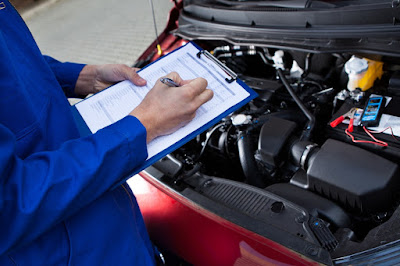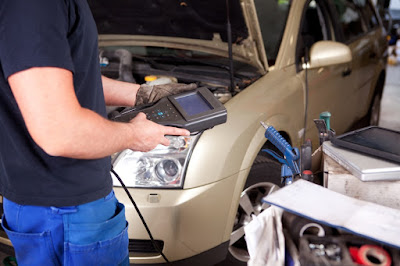As a conscientious driver, you want to make sure your vehicle is as safe as potential while going down the road. While some things may seem too small to be concerned about, when it comes to vehicle maintenance, everything is vital. And of course, it is always wise to double-check the vehicle maintenance checklist listed in your owner’s manual.
So what does regular car maintenance include? Here is a general list of vehicle maintenance items:
- Windshield Wiper Blades –. When the blades are exposed to excessive heat or cold for months on end the rubber may stiffen and no longer wipe the water off the glass. Replace wipers at least once a year, or more if you live in a rainy climate
- Car Battery, Starter, and Alternator – A car battery should be replaced about every 5 years. If your lights appear dim and you run a lot of accessories, it may want to be replaced more often. Have the starter and alternator inspected out too.
- Brake System (rotors, pads, and calipers) – Replace the brake pads at about every 50,000 miles. If you do a lot of stop-and-go driving, you may want to replace these braking components more often.
- Accessory Drive Belt/Serpentine Belt – This belt should usually be replaced about every 60,000 to 100,000 miles. This belt is crucial as it operates many parts, including the alternator, water, and power steering pump, air pump and the A/C compressor.
- Radiator, coolant, hoses, and belts – The radiator circulates coolant and water throughout the engine to prevent it from overheating. Have it checked and the coolant/water mixture inspected about every 6 months. Hoses may want to be replaced about every 75,000 miles.
- Air Filter – For most cars, the air filter should be replaced about every 15,000 to 30,000 miles, depending on the driving conditions. If you don't do a lot of driving, have it replaced at least every 3 years, as it becomes brittle.
- Transmission – Don’t wait until you have shifting issues and a major repair before having a checkup of your transmission. You may simply want a transmission flush.
- Tires – Keep the correct inflation pressure in your tires, and have tires rotated about 6 months. Depending upon the tread wear, tires should be replaced about every 45,000 miles.
- Oil and Filter Changes – This is a small but critical service that keeps your engine running smoothly and efficiently. Follow the recommendation stated in your owner’s manual for the right oil change interval.
What does regular car maintenance include? Call our ASE Certified technicians at Proshop Automotive for more information about vehicle maintenance and to make an appointment. Our auto repair shop proudly serves residents in Colton, CA, and the surrounding areas.

